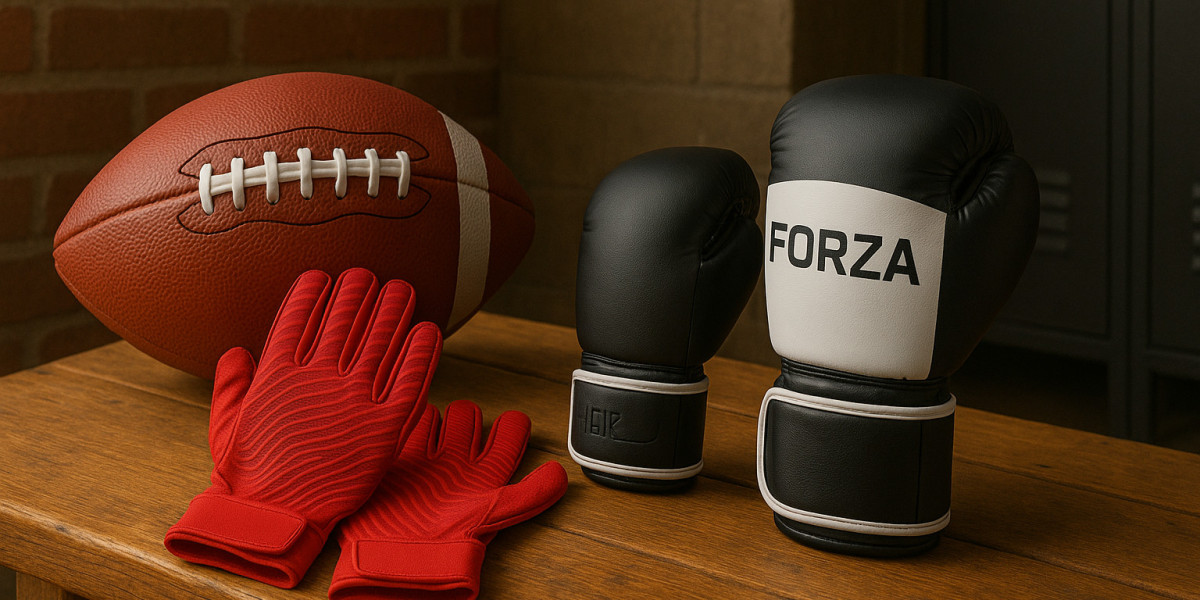When it comes to strength training and lifting heavy, many gym-goers ask one common question: Are weightlifting gloves really worth it? The answer lies in your personal training goals, the type of lifts you perform, and how much emphasis you place on grip, wrist support, and injury prevention.
In this article, we’ll explore the benefits and drawbacks of weightlifting gloves, and help you determine whether they should be part of your fitness gear. We'll also tie in relevant athletic gear like boxing gloves, football gloves, and headgear that contribute to overall sports safety and performance.
The Purpose of Weightlifting Gloves
weightlifting gloves are specially designed to provide support, reduce friction, and improve your grip during workouts. If you’ve ever experienced calluses, sweaty palms, or unstable grips while lifting, you already know how distracting it can be. Gloves offer padding, wrist wraps, and anti-slip textures that keep your hands secure — especially during high-intensity training.
Beyond grip, these gloves also help reduce pressure on your hands and wrists when doing exercises like bench presses, deadlifts, or kettlebell swings.
Benefits of Wearing Weightlifting Gloves
Here’s why many athletes swear by them:
1. Improved Grip Strength
One of the biggest advantages of weightlifting gloves is a stronger, more confident grip. Whether you’re lifting barbells or using machines, these gloves prevent slippage and help you lift heavier with better control.
2. Wrist Protection
Some gloves come with built-in wrist wraps that stabilize your wrist joint. This is essential for people prone to wrist strain, or those lifting heavier weights. If wrist injuries have held you back, this simple gear could change the game.
3. Reduced Hand Fatigue and Injury
Like boxing gloves protect your knuckles, weightlifting gloves protect your hands from tears and calluses. The padding acts as a barrier, keeping your hands safe through repeated reps.
4. Better Hygiene in Shared Gyms
Gloves add a layer of protection between your skin and gym equipment. When training in public gyms, where cleanliness can vary, this barrier can reduce exposure to bacteria.
Who Should Use Weightlifting Gloves?
Gloves are especially beneficial for beginners, those with weak wrists, and anyone who struggles with grip endurance. If you also train in boxing or use a punch bag, you likely already understand how gear like headgear and gloves can prevent long-term damage.
For athletes who also engage in multiple sports, like football gloves youth training or rival gloves sparring, investing in specific gloves for each sport can enhance performance and protect against injuries.
Comparing Gloves: Weightlifting vs. Other Sports Gear
Let’s look at how weightlifting gloves compare to other gloves commonly used in sports.
Boxing gloves are designed to absorb impact and protect your hands during punches.
Football gloves (including youth battle football gloves) are made for grip and agility, especially in catching passes.
Rival gloves are preferred by fighters for their snug fit and hand support during sparring and training.
Each glove serves a purpose. If you're someone who cross-trains—perhaps using a shaker bottle post-workout, then switching from the weight room to the boxing ring or the football field—having the right glove for each sport is key.
What to Look for in a Good Pair of Weightlifting Gloves
Not all weightlifting gloves are created equal. Here are the essential features to consider:
Wrist Support: Opt for gloves with integrated wrist wraps if you need extra support.
Breathability: Mesh or moisture-wicking materials will keep your hands dry.
Padding: Choose the right balance of cushion to avoid bulkiness while protecting your palms.
Grip Material: Silicone or textured palms provide extra grip on bars and weights.
Also, consider how the gloves fit with the rest of your gym gear, such as your shaker bottle, punch bag, or headgear — you want a kit that supports your entire training cycle.
Are There Any Downsides?
Some lifters believe weightlifting gloves can reduce “raw” grip strength over time or get in the way of a proper lifting feel. That’s why some prefer bare-hand training or chalk for powerlifting. However, for most recreational and even intermediate lifters, the pros of gloves outweigh the cons — especially when it comes to safety and comfort.
Final Thoughts
So, are weightlifting gloves worth it? For many, the answer is a clear yes. Whether you're new to lifting or an experienced athlete, gloves can enhance your grip, reduce injury risk, and offer consistent support across training sessions.
As you invest in gear like football gloves, boxing gloves, rival gloves, or Headgear, don’t overlook the importance of a high-quality pair of weightlifting gloves. Your hands, wrists, and overall performance will thank you — especially after an intense workout followed by that well-earned protein shake from your shaker bottle.






